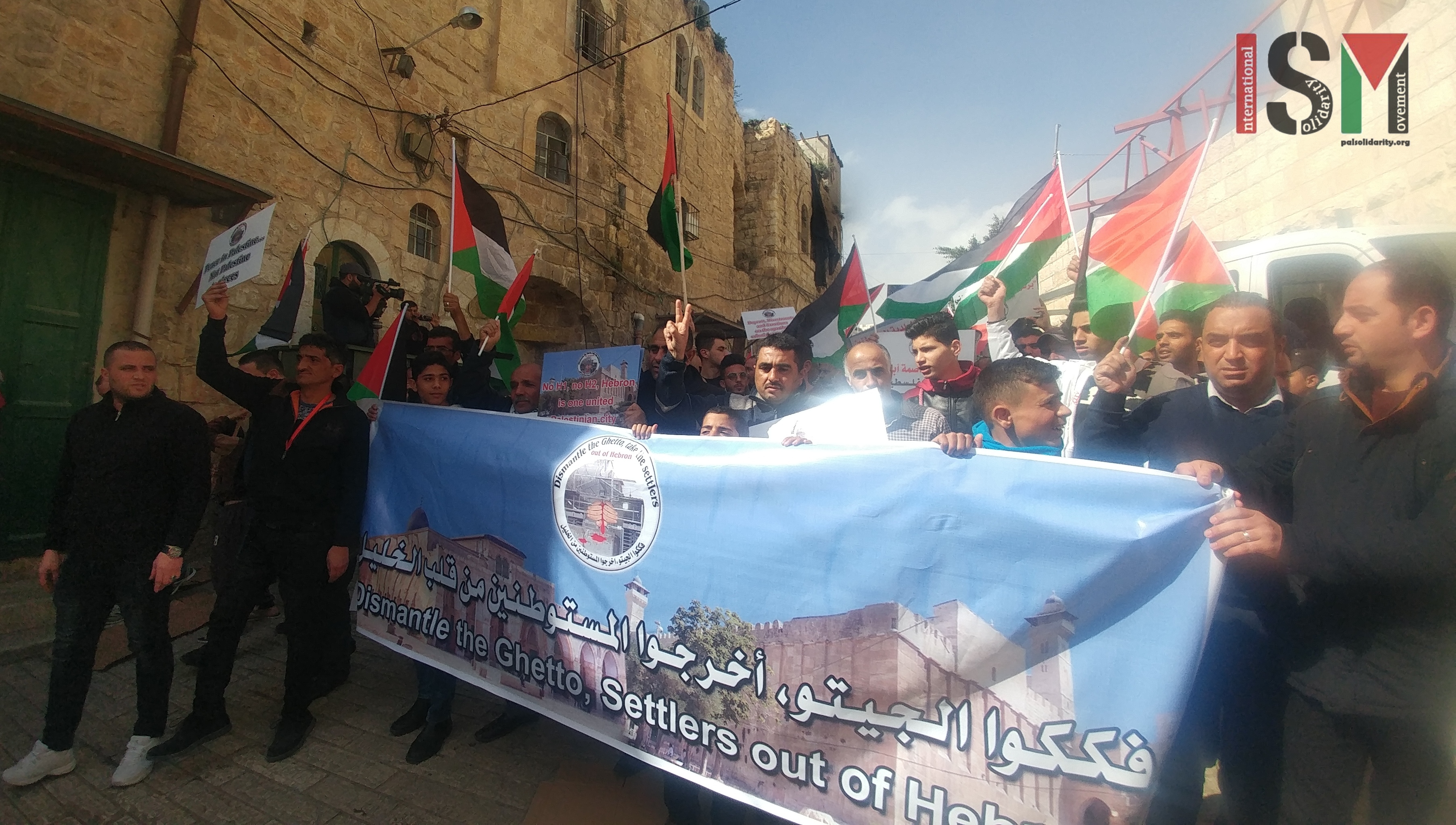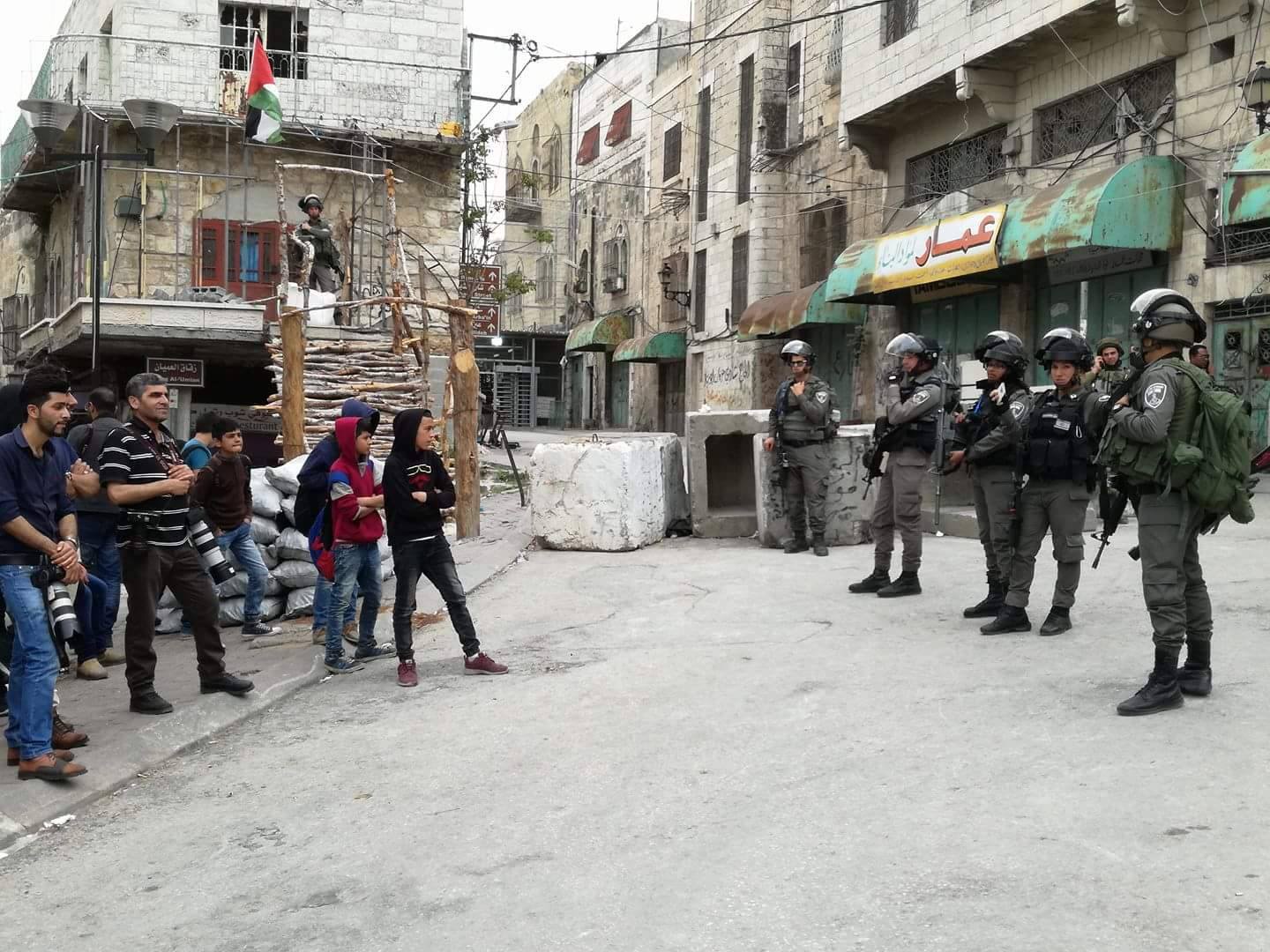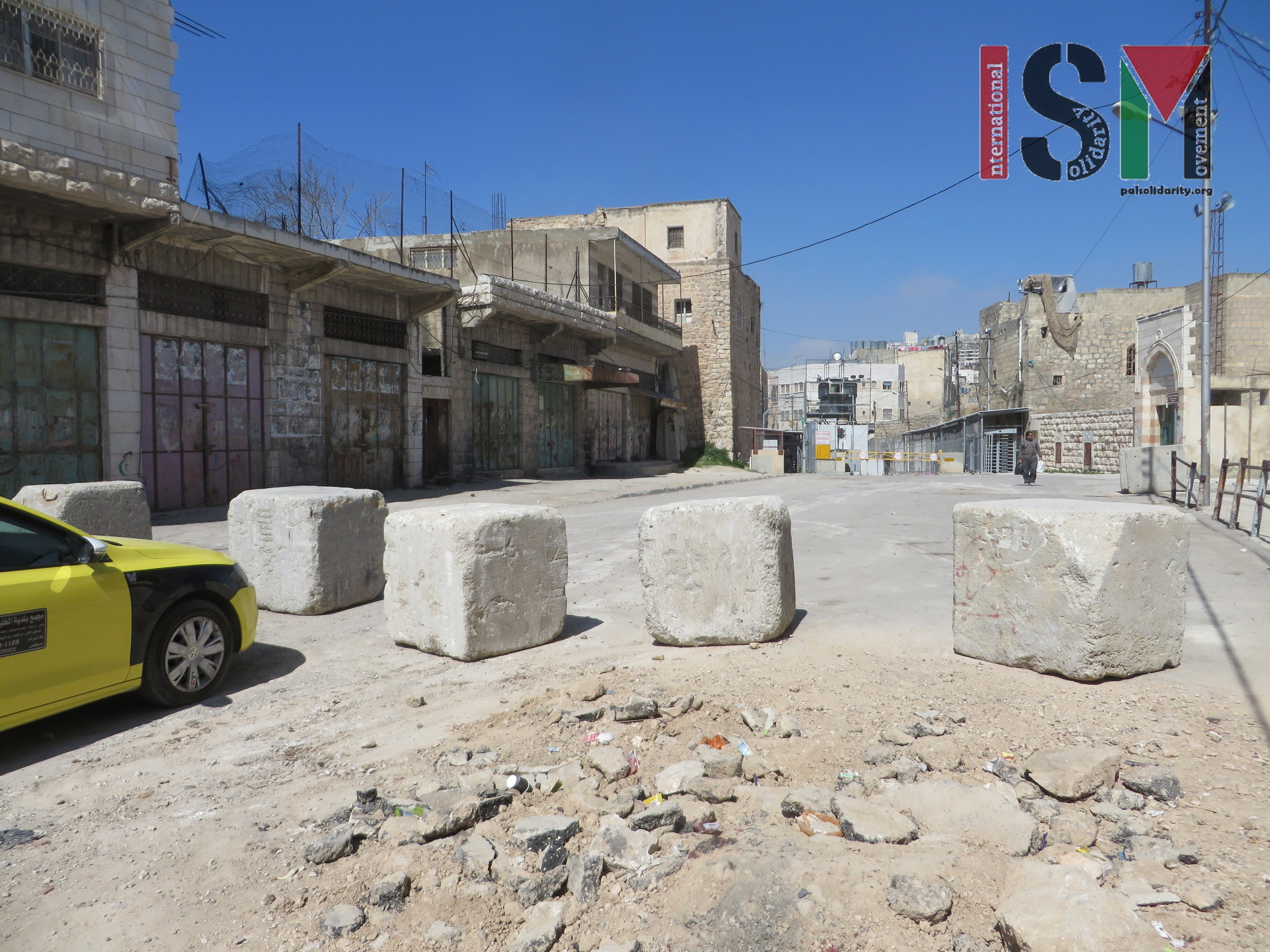Tag: Ibrahimi Mosque
-

Israeli forces suppress Palestinian demonstration against apartheid restrictions in Al Khalil, Hebron
International Solidarity Movement Al Khalil/Hebron Team 16/02/2018 Today a demonstration was organized by Human Rights Defenders and Hebron Defense Committee under the umbrella name Dismantle the Ghetto. Around 300 Palestinians prayed inside and outside the mosque and shortly after prayers they marched from the mosque to Bab Al Baladia which was once a Palestinian gold…
-

In Pictures: al-Khalil on lockdown as Israeli settlers and tourists celebrate Pesach
14th April 2017 | International Solidarity Movement, al-Khalil team | al-Khalil (Hebron), occupied Palestine Since the evening of April 10th, 2017, Israeli forces have imposed increased restrictions on the Palestinians of al-Khalil as colonial settlers and Israeli tourists celebrate Pesach – or Passover – across the city. So far, homes have been occupied, checkpoints closed,…
-

Step by step Israeli forces limit access to Ibrahimi mosque area
7th March 2017 | International Solidarity Movement, al-Khalil team | Hebron, occupied Palestine Israeli forces on Monday night installed more concrete blocks near Queitun checkpoint in occupied al-Khalil (Hebron) further restricting Palestinian freedom of movement. Israeli forces put a new line of cement blocks several meters away from Shuhada checkpoint, entirely blocking the access to…
